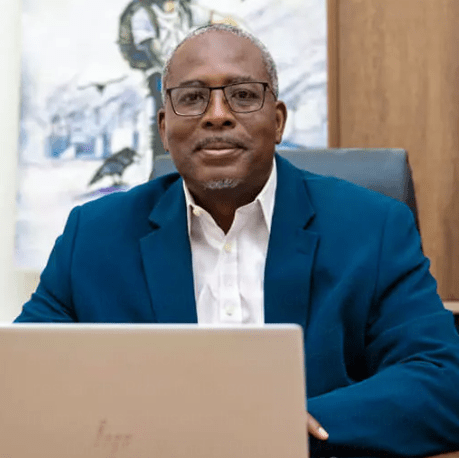Technology represents the best bet to outsmart the complex schemes employed by criminals to launder billions annually, President and Provost at the Academic City University College, Professor Fred McBagonluri, has said.
For decades, the fight against money laundering has been a game of cat and mouse, with criminals constantly innovating new ways to clean their dirty cash. But with the introduction of more digital forms of money, coupled with artificial intelligence (AI) and big data, the tide may be turning, he argued.
“It is evident that there is no going back on the digital revolution; and as we continue along that path, some of the challenges we face within governance, especially the illicit flow of cash, would be reduced to the barest minimum if not totally eradicated,” he said.
Professor McBagonluri made these remarks on the side-lines of the Annual General Meeting of the Institute of ICT Professionals, Ghana (IIPGH), where he has served as the Board Chair for the last six years.
His comments come at a time of renewed concerns over money laundering as experts continue to warn that stolen funds could be used for essential services like healthcare or education, leaving millions worse off.
Furthermore, this flow of illicit funds not only serves as the lifeblood of organised crime, but also fuels the flames of corruption and terrorism, posing a severe threat to the stability and security of nations across the globe.
Globally, the pervasive issue continues to cast a long shadow, with estimates indicating an annual volume ranging from US$800billion to a staggering US$2trillion, representing between two to five percent of the world’s gross domestic product (GDP), according to the United Nations Office on Drugs and Crime (UNODC).
In sub-Saharan Africa, estimated losses are pegged between US$8.4billion and US$14.8billion annually – between two and four percent of the region’s GDP.
Locally, conservative estimates point to an annual loss ranging from US$3billion to US$6billion due to money laundering activities. This informed the Financial Action Task Force (FATF) and the European Union to place Ghana on their increased monitoring lists in 2019 and 2020 respectively, over apprehensions about the effectiveness of its anti-money laundering (AML) and combatting the financing of terrorism (CFT) measures.
This resulted in transactions from the country being subject to extra scrutiny. However, efforts by relevant bodies saw a reversal of the listing by the start of 2022.
Recent events have reignited discussions on a concerning matter. Last week, the Office of the Special Prosecutor (OSP) disclosed that it had uncovered the operations of a major currency counterfeiting ring operating in Accra and Tema.
The watchdog seized fake money amounting to US$40million concealed in steel trunks, it said.
Already, the OSP is leading an investigation into allegations of corruption and corruption-related offences against former Sanitation Minister Cecelia Abena Dapaah. These allegations emerged following a shocking discovery of over US$1million, an additional US$590,000, and GH¢2.73million in cash at her residence. This discovery followed the theft of substantial sums by her domestic staff.
Moreover, suspicions of money laundering have cast a shadow over the nation’s real estate sector. In October 2023, the Ghana Real Estate Developers Association (GREDA) – the umbrella body of property developers – acknowledged the severity of the threat.
With campaign financing expected to be a matter of interest going into the 2024 General Elections, among other events, Lead for Financial Crimes and AML at e-Crime Bureau, Eric Kwaku Mensah, believes technology would be crucial in providing much-needed sanity.

If transactions were to remain cash-based, then the issue of money laundering would remain high, but as technology is increasingly employed, there is a trace – a digital footprint – so the introduction of AI and perhaps, elements of blockchain technology for detection, monitoring and compliance of the money that flows at such times will be very important,” he explained.
However, caution, some experts said, must be exercised as AI is a powerful tool, but not a silver bullet. Human oversight and ethical considerations remain crucial and Mr. Mensah agrees.
“The other side is where regulation comes in. It must be robust enough to not only state the penalties, but also ensure enforcement,” he added.










